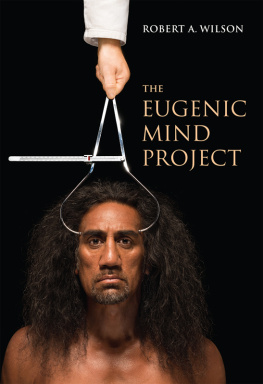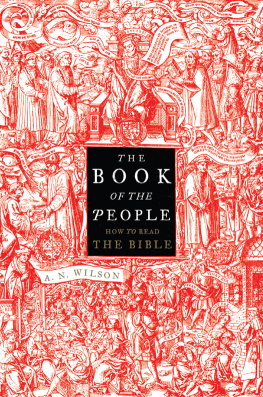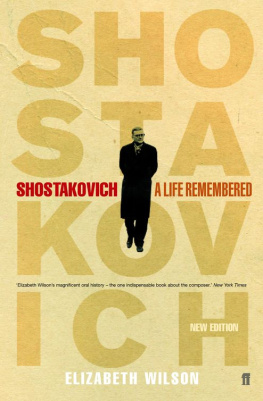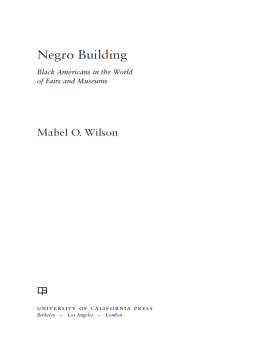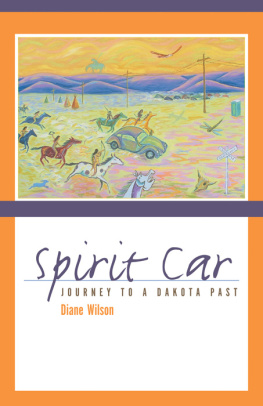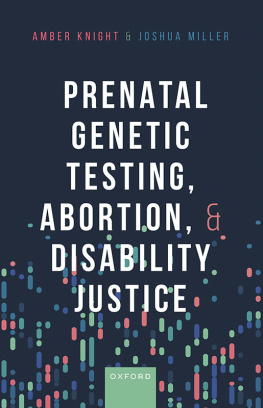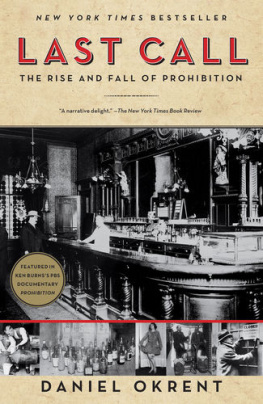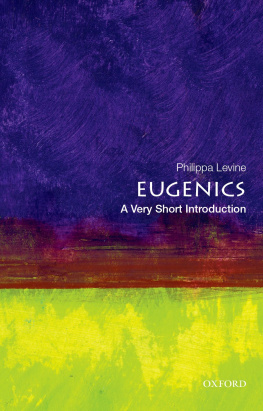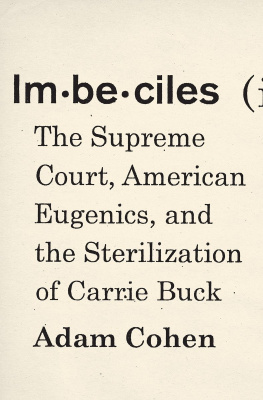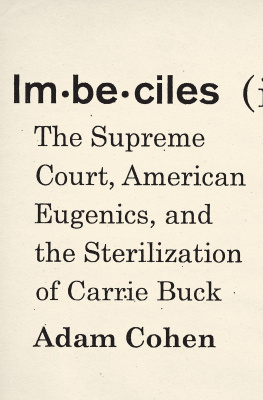Wilson - The Eugenic Mind Project
Here you can read online Wilson - The Eugenic Mind Project full text of the book (entire story) in english for free. Download pdf and epub, get meaning, cover and reviews about this ebook. year: 2018, publisher: MIT Press, genre: Politics. Description of the work, (preface) as well as reviews are available. Best literature library LitArk.com created for fans of good reading and offers a wide selection of genres:
Romance novel
Science fiction
Adventure
Detective
Science
History
Home and family
Prose
Art
Politics
Computer
Non-fiction
Religion
Business
Children
Humor
Choose a favorite category and find really read worthwhile books. Enjoy immersion in the world of imagination, feel the emotions of the characters or learn something new for yourself, make an fascinating discovery.
The Eugenic Mind Project: summary, description and annotation
We offer to read an annotation, description, summary or preface (depends on what the author of the book "The Eugenic Mind Project" wrote himself). If you haven't found the necessary information about the book — write in the comments, we will try to find it.
The Eugenic Mind Project — read online for free the complete book (whole text) full work
Below is the text of the book, divided by pages. System saving the place of the last page read, allows you to conveniently read the book "The Eugenic Mind Project" online for free, without having to search again every time where you left off. Put a bookmark, and you can go to the page where you finished reading at any time.
Font size:
Interval:
Bookmark:

Robert A. Wilson
The MIT Press
Cambridge, Massachusetts
London, England
2018 Massachusetts Institute of Technology
All rights reserved. No part of this book may be reproduced in any form by any electronic or mechanical means (including photocopying, recording, or information storage and retrieval) without permission in writing from the publisher.
This book was set in ITC Stone Sans Std and ITC Stone Serif Std by Toppan Best-set Premedia Limited. Printed and bound in the United States of America.
Library of Congress Cataloging-in-Publication Data is available.
ISBN: 978-0-262-03720-4
eISBN 9780262343862
ePub Version 1.0
For Leonie
and
in memory of Leilani
(19442016)
The Eugenic Mind Project derives from some unexpected twists and turns in my professional and personal life over the past ten years or so. Prior to that time, I had worked primarily in the philosophy of mind, cognitive science, and biology, and was turning to complete a projected trilogy of books on the individual and individualism in what I called the fragile sciences. Having published Boundaries of the Mind on cognition in 2004, and Genes and the Agents of Life on biology in 2005, it was a matter of turning to the third bookon sociality. While I had had to absorb some new literature from the cognitive and biological sciences between 1998 and 2003 in writing Boundaries and Genes, moving to complete this trilogy on the role and conception of individuals in the cognitive, biological, and social sciences involved a more dedicated program of study. About cognition, I antecedently knew a reasonable amount, having completed a doctorate in the philosophy of mind and worked primarily in the cognitive sciences during the 1990s. About biology I knew passingly enough, chiefly from teaching the philosophy of biology from 1995 while at Queens University, and then by benefiting from several programs for faculty aimed at promoting the depth of ones interdisciplinary scholarship, sponsored by my next erstwhile employer, the University of Illinois, Urbana-Champaign. Extending some ideas in Boundaries about individuals in the cognitive sciences into the biological sciences in Genes primarily relied on a good enough match between my own partial, growing bioknowledge and the inherently integrative (and forgiving) nature of the interdisciplinary field covering the history, philosophy, and social study of biology.
But my own ignorance ruled the day when it came to sociality and the social sciences. Here the learning curve was to be a fair bit steeper. In fact, it only gradually became clear over a number of years that the proposed third book in the trilogy, Relative Beings, could not adopt the smorgasbord approach that governed the second booka little bit of this, a little bit of that.Relative Beings would focus instead on kinship as a primary structure governing individuals and the forms of prosociality in which they were immersed. But then eugenics, and a different kind of learning curve, came along shortly after moving to Edmonton, Alberta, in 2000.
The initial drafts of what have become the chapters in the first half of The Eugenic Mind Project were written while I was the principal investigator for the Living Archives on Eugenics in Western Canada project, a role that provided a wealth of experiences that inform the book. As will be clear from the introductory chapter, the collaborative work that emerged from this project, and particularly the contributions of eugenics survivors to that project, were the sine qua non for my own thinking here. I would especially like to thank Judy Lytton, Leilani Muir, Ken Nelson, Glenn George Sinclair, and Roy Skoreyko not only for their courage in sharing their experiences and lives in detail in a variety of settings, but also for their resilience and commitment to working together with community advocacy organizations, academics, and students on eugenics past and present. I am also grateful to the projects other team leadershistorian Erika Dyck, community advocate Nicola Fairbrother, disability studies scholar and activist Gregor Wolbring, and humanities computing specialist Natasha Nunnand to the multitalented project manager, Moyra Lang, for their co-direction of the project over a five-year period.
I would also like to acknowledge the important role that students and former students played here, especially Jacalyn Ambler, Emma Chien, Luke Kersten, Bart Lenart, Colette Leung, Ben McMahen, Faun Rice, Aida Roige, Amy Samson, Josh St. Pierre, and Mark Workman. All contributed significant content to the projects ongoing website, EugenicsArchive.ca, a site that I have drawn on repeatedly in my writing and teaching.
These collaborations would not have been possible without the generous financial support of the Social Sciences and Humanities Research Council of Canada through their award of a Community-University Research Alliance grant for the project in 2010, as well as from our major university and community partners, particularly the universities of Alberta, Calgary, and Saskatchewan, and Neighborhood Bridges.
The book as a whole was drafted in January 2016 in Melbourne, Australia, and revised in light of reviewer and other peer feedback during the course of the remainder of that year. I would like to thank three anonymous reviewers for MIT Press for their distinctive, encouraging comments on what was, at that time, a manuscript without notes at about two-thirds its final length, and the philosophy editor at the press, Phil Laughlin, for his support for publication. I am indebted to Luke Kersten, Matthew J. Barker, Faun Rice, and Mary Horodyski for comments on penultimate versions of the chapters in part I, and to Michael Brub, Ken Bond, Maria Kronfeldner, Sandra Harding, Julie Maybee, Milton Reynolds, Susan Schweik, Alexandra Minna Stern, and Alison Wylie for more general guidance in shaping up the final version. More nascent forms of the material here were presented at a variety of venues, including in talks each year during Alberta Eugenics Awareness Week (20122014); at the biennial or annual meetings of Cheiron, the International Society for the History, Philosophy and Social Studies of Biology, the International Society for the History of Neuroscience, and the Pacific Division of the American Philosophical Association; at keynote addresses to the Australasian Association of Philosophy in Wollongong, the Atlantic Canadian Philosophical Association in Halifax, the Philosophy of the Life Sciences Network in Gut-Siggen, and the student-led Philosophy-History-Politics-Conference at Thompson Rivers University in Kamloops; and at invited talks at the Central European University in Budapest, the University of Vienna, Pennsylvania State University, Lewis & Clark College, Concordia University in Montreal, the University of Alberta, the University of Calgary, and the University of British Columbia, Okanagan, in Kelowna. I would like to thank my hosts in each case, and audiences for their interest and probing questions and comments.
I have drawn on joint work with Luke Kersten, Joshua St. Pierre, and Matthew J. Barker, and I am grateful for their permission to do so, as well as for the collaborations themselves. The material in chapter 7 draws on both Eugenics and Disability, written with Josh, with sections 7.57.8 stemming from Joshs contributions most directly, and a paper written with Matt, Well-Being, Disability, and Choosing Children. The material in chapter 3 draws on work undertaken with Luke Kersten. I am grateful to Garant Publishing for permission to use material from Eugenics and Disability, which appears in
Next pageFont size:
Interval:
Bookmark:
Similar books «The Eugenic Mind Project»
Look at similar books to The Eugenic Mind Project. We have selected literature similar in name and meaning in the hope of providing readers with more options to find new, interesting, not yet read works.
Discussion, reviews of the book The Eugenic Mind Project and just readers' own opinions. Leave your comments, write what you think about the work, its meaning or the main characters. Specify what exactly you liked and what you didn't like, and why you think so.

